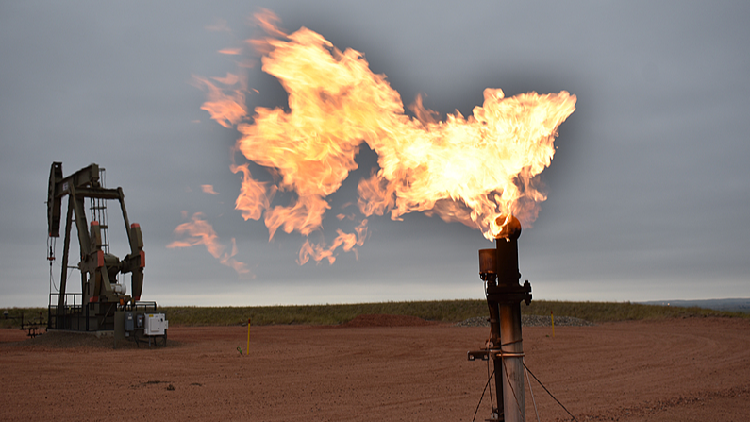UN Reports: Nations and Corporations Fall Behind on Methane Emissions Recommendations
UN: Countries, companies fall short in addressing methane emissions report

"We had expected [the response rate] to be substantially higher," stated Roland Kupers, the program's lead architect, during a presentation at the COP29 climate summit in Azerbaijan.
Many recipients of the alerts about large methane plumes detected by satellites operate under a global pledge initiated three years ago aimed at reducing methane emissions by 30 percent from 2020 levels by 2030.
"Governments and oil and gas companies ... must stop paying lip service to this challenge," remarked Inger Andersen, executive director of the U.N. Environment Programme, which oversees the Methane Alert and Response System monitoring program.
"They should recognise a significant opportunity that this system presents and start responding by plugging leaks that are spewing out climate-warming methane."
Methane, known for being a potent greenhouse gas, exhibits 80 times the warming potential of carbon dioxide over a 20-year period. To date, emissions of methane have contributed approximately 0.5 degrees Celsius to global warming, accounting for about a third of the temperature rise observed since the mid-19th century.
Experts indicate that capping leaks from oil and gas wells and equipment represents one of the fastest methods for addressing this issue. Additionally, they highlight the financial implications, emphasizing that lost methane corresponds to lost product.
Despite 150 countries signing the Global Methane Pledge, methane emissions from the oil and gas sector have remained at record highs since 2019.
Approximately 140 companies have also joined an initiative known as the U.N.'s Oil and Gas Methane Partnership 2.0, pledging to address unintentional methane emissions.
Anna Muller for TROIB News
Find more stories on the environment and climate change on TROIB/Planet Health












